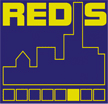
The development of knowledge economy within urban regions is vital for the future of Europe. This is why city policies and attitudes about centres of innovation and the creation and commercialization of knowledge are essential for the future. The eight partners of the REDIS project focused for two and a half years on one main aspect of knowledge economy policy: they tried to understand how to develop special locations, zones, quarters or parks, where knowledge-based companies and institutes can be jointly located. Each partner already had an urban development of this type (a “knowledge hotspot”) in various degrees of advancement, and wanted to share best practices and learn from others.

Key Challenges
Project partners all faced two specific challenges:
- How to develop "science quarters" as an integrated part of the city
This meant evaluating the kind of conditions and policies that lead to successfully embedding science sites inside cities. It implies not only avoiding creating islands of elitism and glaring disparities, but also embedding knowledge hotspots into the social and urban structure of this city. - How to handle complex governance issues
Little was known in detail about the complex interplay between local, regional, national and European actors and policies in building successful knowledge hotspots in cities. The project therefore had to find new ways of organizing the triple helix (industry-government-universities) that can effectively link generic national models to specific needs in a particular environment.
Main Results
Designing a concept
A successful knowledge hotspot targets clearly defined groups with a concept that gives them a joint identity around a common theme. This could be a knowledge area such as the life sciences or a more challenging theme such as creativity. Companies located there can cooperate by sharing resources. In terms of urban design and landscaping, a hotspot will express its ambitions and commonalities in the physical layout.
Governance issues
Although the various stakeholders (land owners, developers, tenants, inhabitants, knowledge institutes and city departments) will inevitably have diverging interests and ambitions, it is vital for a knowledge hotspot to be managed well by a supervisory team that can reconcile these differences and provide a nurturing environment for discussion and resolutions.
Cooperation between city and university
A knowledge hotspot cannot work as a stand-alone development, a ghetto for boffins. It needs to be well connected to the entire urban fabric, with economic, physical and social links with the city itself. In this way it can energize its local environment and add an innovative touch to the life of the city.
Recommendations & ProspectsThere is obviously no blueprint for integrating knowledge hubs into the city. Each experience is uniquely associated with the historical and geographical context of each urban environment.
However, there are a number of good reasons why knowledge hotspots are worth developing. The key to successl is that the people involved – usually talented and creative people - should feel happy to live, work and relax there.
The challenge therefore is to design the right kind of dynamic environment with appropriate amenities that attracts this particular demographic and encourages them to settle in the area.
Once there, the knowledge hotspot can become a strong attractor for events, concerts, and exhibitions of all kinds that draw citizens to the area.
Knowledge hotspots send out a strong signal that the city in question is playing a pro-active role in the knowledge economy as a whole. It might achieve this by upgrading a degraded neighbourhood, and transforming it into a locus where research and business can work together in synergy to promote innovation.
Download the guidebook Creating knowledge hotspots in the city - PDF
Read more
- REDIS project mini-site - URBACT website
- REDIS Guidebook - Creating knowledge hotspots in the city - PDF
- Zoom on Aarhus - URBACT website
- REDIS Partners' Local Action Plans - URBACT website
